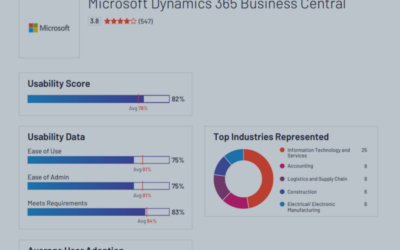In the IT solutions industry, software vendors and resellers are a dime a dozen. As software vendors ourselves, Intelligent Technologies understands this through and through, and it is the reason why we try to stand out as a company that offers software products tailored to its clients’ needs. But you shouldn’t simply take our word, or any other vendor’s word for granted. Research and comparison are necessary exercises when choosing a software vendor for your business or organization. The key to choosing the right software vendor lies in asking the right questions.
What does your company need?
The very first question that must be asked when searching for an independent software vendor is a question for your own company. The first thing you must know as a CIO or COO before engaging in a business relationship with a software vendor, is exactly what your company needs for its IT infrastructure and operations. The best way to start is to make a list of what is necessary in terms of software solutions and computer hardware and what is ideally wanted. What you would like for the company isn’t always the best option financially, and sometimes what you think your company needs doesn’t cover the basics at all.
Here’s a few questions to help you begin taking a critical look at where you are today and where you want to be.
Internal IT Resources and Support:
- What are the capabilities of our internal IT team to support the implementation and maintenance of the ERP system?
- Will our implementation consultant need to supplement or lead these efforts?
Deployment Options:
- Are we inclined towards deploying the ERP software in the cloud or on-premises?
- What are the advantages and drawbacks of each deployment option in our specific organizational context?
Integration Requirements:
- Which existing software systems does the new ERP system need to integrate with?
- What specific functionalities or data exchanges are essential for seamless integration?
Handling Updates and Maintenance:
- Do we possess the in-house expertise to manage ERP system updates and maintenance tasks effectively?
- Alternatively, will we require external assistance, and if so, what budget allocation is necessary to accommodate this support?
Remote Work Considerations:
- What proportion of our workforce currently operates remotely, and how might this change in the foreseeable future?
- What do we need from the ERP system to facilitate and optimize operations in a remote or hybrid work environment?
Future Growth and Expansion:
- Where do we envision our business in the next few years, including potential expansions in staff and product/service offerings?
- What specific functionalities and scalability features should our ERP system possess to support these growth projections effectively?
Total Cost of Ownership (TCO):
- Besides the initial acquisition cost, what other expenses should we consider in assessing the total cost of ownership (TCO) for the ERP system?
- How does the projected ROI justify the investment in the chosen ERP solution over the long term?
Then, survey what the end user’s biggest challenges are when working and what the managers and directors of your company’s different teams most need from their software. Does your sales team need to revamp their CRM? Is your finance team running into delays because certain information isn’t readily available when they need it? What are your team’s usual complaints about their tools and applications? All these questions will lead you to determine what is most needed in your company from IT. Once you have determined the needs, must-haves, and wants, you can seek a software vendor that will cater to your specific requirements.
Where do I find potential vendors?
With all requirements listed, it’s time to shop around for potential vendors. It may be tempting to simply purchase a product, but you will want to understand your business needs first. Look for a provider that not only sells software, but also offers custom development and solutions. If you already have a vendor in mind, it’s important to ask for references that are similar in both industry and size to your own company. These will show you how well they know the software and can handle the workload.
Going for the company that regularly handles corporate enterprise may not be the best option for a medium-sized business. These vendors may not understand the needs of SMBs or be able to scale down efficiently. If you haven’t found a possible vendor yet, try business networks such as LinkedIn or software review sites. LinkedIn can be especially effective since it is designed to get business in touch with the experts they need. Industry publications such as articles and blogs can also lead you to great candidates for your software vendor.
Picking the Right One
So, you have a list of software vendors that work with your industry and with companies of similar size. Which of these is the right fit? While there are many intangibles present, don’t overlook things like certifications and awards as well as customer testimonials.
How a vendor charges is important, as well as searching for hidden fees in the management services they offer. The way business contracts are setup is important as you want to avoid a vendor that wants to “lock” you in to service for an extended period, even if the service isn’t delivering as expected. Avoid working with vendor’s that have stipulations in their contracts that may hold your data hostage and require you to pay large fees to recover it in case the relationship between the companies reaches a point of schism. Learn why SMBs all over the country choose Intelligent Technologies, Inc. as their software vendor.
Ready to find the right solution for your business?
Download our ERP partner interview checklist to compare your top options side by side.




